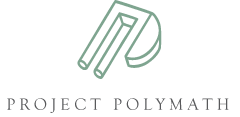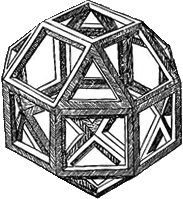Life of a Polymath Student:
Here's an example day of a Polymath student working on cracking the “musical Turing test”: creating an algorithmic composition program which can produce music indistinguishable from that of a professional human composer.
| Friday September 2, 2016: | |
|---|---|
| 8:00 | |
| 8:30 | |
| 9:00 | |
| 9:30 | Breakfast at Leonardo's Cafe |
| 10:00 | Topic Unit: Fourth-Species Counterpoint |
| 10:30 | |
| 11:00 | Topic Unit: Introduction to Neural Networks |
| 11:30 | |
| 12:00 | Lunch at Leonardo's Cafe |
| 12:30 | Project: Add machine learning to voice-leading module of the composer (with Alice and Bob). |
| 1:00 | |
| 1:30 | |
| 2:00 | |
| 2:30 | |
| 3:00 | Topic Unit: Markov Processes |
| 3:30 | |
| 4:00 | Topic Unit: Florid Counterpoint |
| 4:30 | |
| 5:00 | Coffee break at Student's Tea Distribution |
| 5:30 | Walk the Bingen Trail |
| 6:00 | Open piano in the Conservatory |
| 6:30 | Dinner with friends |
| 7:00 | |
| 7:30 | |
| 8:00 | Project: Correct a flaw in the program's counterpoint module. |
| 8:30 | |
| 9:00 | Markov Process exercise (optional if integrated into project). |
| 9:30 | |
| 10:00 | Optional counterpoint exercise (integrated into the project) |
| 10:30 | |
| 11:00 | |
| 11:30 | |
| 12:00 | |
Other students, or the same student on a different day, may choose to balance their topic unit and project schedules differently. Each topic unit is a lecture or series of lectures on one specific topic, taken as-needed for the component of the project which you are currently working on. Since topic units support the project, topic unit exercises are optional if the topic has been integrated into the project instead.






